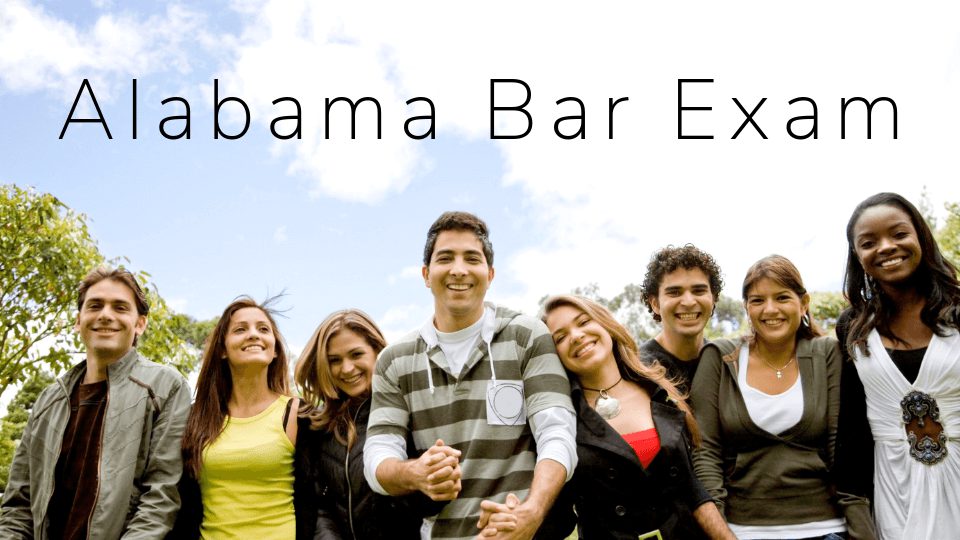
Bar Exam Anxiety Tips: How to Not Become a Nervous Wreck
By Jarom Petersen
Updated: June 4, 2018
Whether you’re taking the bar exam for the first time or re-taking it, you’re probably experiencing a great deal of fear and anxiety. This is, after all, the likely final step standing between you and a long-awaited career.
If you’ve never studied neuroscience or psychology or are unfamiliar with some of these concepts, they might feel like hokey, medicine-man-type solutions. But they’re not. There’s real research backing these principles.
To help you manage anxiety and train your brain, consider supplementing your studies with Bar Exam Mind. Developed by Matt Racine, an attorney and bar exam coach, Bar Exam Mind provides you with a short series of audio programs containing positive affirmations and guided visualizations. (Note: Crushendo is not affiliated with Bar Exam Mind, but Racine reviewed our MPRE study aids last year and recently invited us to review his curriculum.)
Used alongside bar review material, like Crushendo’s, Racine’s affirmations and visualizations train your brain to believe in your ability to study effectively and perform well on the bar exam. For those who have failed the bar and are taking it again, Racine has also developed a self-evaluation form to help you understand where you went wrong the first time and what needs to change for you to pass the bar.
If you’ve never studied neuroscience or psychology or are unfamiliar with some of these concepts, they might feel like hokey, medicine-man-type solutions. But they’re not. There’s real research backing these principles.
The value of self-evaluation
They say the definition of insanity is doing the same thing repeatedly while expecting different results each time. But if you want to improve in the future, you must understand where you went wrong in the past. This is why the self-evaluation form is so valuable. If you fail the bar exam the first time you take it, reason dictates that something must change in how you prepare to pass the next time. This form helps you to really nail down everything that happened in the hours, days, and weeks leading up to the bar exam. By honestly and thoroughly answering all the questions, you can compare why you initially thought you didn’t pass with factors in your life that you may not have considered. These factors include any unexpected obstacles or events that distracted you, if you studied the day before or the day of, how you slept, and what you ate the day of the exam.
The final insightful factor that the self-evaluation form asks you to consider is if your score report reveals any patterns. For instance, is there a time of day during which you performed better? The bar exam is a rigorous, rather exhausting experience, and patterns in your score report can usually point to changes that need to be made in sleeping and waking patterns and in building physical and mental stamina for the exam.
Understanding common problems
In association with the self-evaluation form, Racine provides you with some common denominators that lead to failure. Using this in conjunction with your own evaluation can help you identify just what changes you need to make. Realize that making changes often requires both stopping and starting. Stop doing the things that are making your study unproductive and start doing the things that can help you reach peak efficiency and effectiveness.
Why the affirmations and visualizations work
Here at Crushendo, we believe in the power of affirmations and visualizations. We use them frequently in our own audio outlines, so we were excited to see them used by Bar Exam Mind. While it may seem odd that something so simple could be so effective in training the mind to manage anxiety, psychologically, there are two key elements at play: self-efficacy and mindfulness.
Self-efficacy is believing in one’s ability to complete a certain task. While many factors have been found to increase a person’s self-efficacy, the one factor that influences it the most is mastery experience: “I’ve done it before, so I know I can do it again.” The affirmations and visualizations essentially trick your mind into developing mastery experiences of studying effectively and performing well on the bar exam. In this way, you train your brain so that when it comes time to sit down and complete the task before you, you’ve already done this in your mind a hundred times. By the way, this is also why using quality practice exams in a timed setting, like those available through Crushendo, is so important. The affirmations and visualizations just add another—very effective—dimension to training your brain to be a help rather than a hinderance during the exam.
Mindfulness generally means awareness of the present, including a calm, nonjudgmental acknowledgement of feelings, thoughts, and physical sensations. A common technique in therapy, it has applications in just about any situation where anxiety may be wreaking havoc. One of the common problems identified by Racine and included in his self-evaluation form is how anxious you felt going into and during the bar exam. Learning to be mindful helps you manage anxiety and stress. You learn first to recognize physiological responses to stress and then to distinguish between what you can and cannot control. The relaxation visualization—and other visualizations—are guided meditations, a technique where a teacher or clinician talks you through your meditation, helping you stay focused.
As you participate in the visualizations, you’ll see that mindfulness will become not just something to practice when you’re stressed and anxious as you prepare for the biggest exam of your life, but something that may help you down the road in your career. It’s no secret that alcoholism and depression are real problems that often creep into demanding legal careers. Perhaps the techniques you learn through Racine’s Bar Exam Mind program will prepare you to prosper as you progress through the challenges of your profession.
What Bar Exam Mind is like
A few packages are available for purchase at the bottom of Bar Exam Mind’s homepage. If you’re taking the bar for the first time, you’ll only need the visualization audios and bar exam affirmations, currently priced at $17 and $7 respectively. (Though it’s also worth noting the Racine also offers free law school and bar-related outlines through his website).
If you’re retaking the bar and want the self-evaluation program, you have three options. For $27 you can purchase the standard package, which includes the 8-page self-evaluation form, about 45 minutes of audio to guide you through the form, and 21 minutes of audio explaining common problems for those who fail. For $37 you can purchase the deluxe package, which adds the visualization audio recordings and bar exam affirmations. Finally, for $147 you can purchase the premium package, which includes all the previous material, plus a 60-minute consultation with Racine about your self-evaluation. Full refunds are available within the first 30 days, except for the premium package if the consultation has already taken place.
Once you purchase your package, you’ll be given access to the files to be downloaded for your personal use. The visualizations include a 6-minute introduction, seven guided visualizations (totaling about 18 minutes), and an 8-minute bonus relaxation visualization. The affirmations include a 4-minute introduction and 15 minutes of actual affirmations. Both programs include PDF transcripts, and all the programs—including the self-evaluation—include a PDF with instructions. The self-evaluation is meant to be used once, while the affirmations and visualizations are meant to be used repeatedly throughout the study process.
Popular Posts
Famous People Who Failed the Bar
Law School Grades: Avoiding Crushed Souls and Bloated Egos
Crushendo vs. AudioOutlines vs. AudioLearn
Bar Exam Anxiety Tips: How to Not Become a Nervous Wreck
Parody: Motivational Movie Clip Mashup
Buzz
Crushendo Launches National Bar Prep Competition
Bar-pocalypse! Bar Prep During COVID
Meet the Millennial Turning Bar Prep Upside Down
The Fun Way To Crush Your Bar Exam Prep (Yes, Really)
A Quick Introduction to Crushendo – Law Students Take Note
Crushendo Helped Me Fail a Practice MBE Exam [in the Best Way]
How I Supplemented My Bar Prep Course
Is Crushendo the Future of Exam Prep?
Results Are In… Crushendo IS the Future of Bar Exam Prep

About the author
Jarom Petersen is a law student at the University of Missouri-Kansas City. He’s passionate about civil justice and helping the underprivileged. He enjoys spending time with his wife and children. He loves music and singing.



